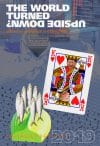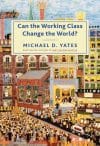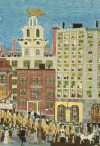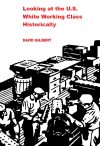Labor

To comprehend twenty-first-century imperialism we must go beyond analysis of the nation-state to a systematic investigation of the increasing global reach of multinational corporations or the role of the global labor arbitrage. At issue is the way in which today’s global monopolies in the center of the world economy have captured value generated by labor in the periphery within a process of unequal exchange, thus getting “more labour in exchange for less. The result has been to change the global structure of industrial production while maintaining and often intensifying the global structure of exploitation and value transfer. | more…

From the Gaze of the Supervisor to the Digitalization of Employees
Workplace surveillance and the invasion of employee privacy have always been present under capitalism. Historically, this has mostly involved the combination of visual observation and abstract time, focusing on employee performance. However, the development of new information and communication technologies has brought important changes to the manner in which employers control employee productivity. Such digitalization or datafication of employees constitutes a qualitative change in the history of workplace surveillance—a change that reduces workers, their performance and bodies, to lines of code and flows of data to be scrutinized and manipulated. | more…

A World Turned Upside Down? poses two overarching questions for the new period opened by the Trump election and the continued growth of right-wing nationalisms. Is there an unwinding of neoliberal globalization taking place, or will globalization continue to deepen, but still deny the free cross-border movement of labor? | more…

One of the horrors of the capitalist system is that slave labor, which was central to the formation and growth of capitalism itself, is still fully able to coexist alongside wage labor. But, as Karl Marx pointed out, it is the fact of being paid for one’s work that validates capitalism as a viable socio-economic structure. Beneath this veil of “free commerce”—where workers are paid only for a portion of their workday, and buyers and sellers in the marketplace face each other as “equals”—lies a foundation of immense inequality. Yet workers have always rebelled. They’ve organized unions, struck, picketed, boycotted, formed political organizations and parties—sometimes they have actually won and improved their lives. In his timely and innovative book, Michael D. Yates asks if the working class can, indeed, change the world. | more…

In this excerpt from his forthcoming title, Can the Working Class Change the World?, Yates details the historical development of the working class—its potential for (and barriers to) unity, and how it is still the only force in society that can bring about its fundamental, radical transformation. | more…

Since the late 1990s, China’s economic expansion has depended on an immense pool of cheap labor. Today, as wages increase and manufacturing operations leave the country, there are constant complaints about shortages of peasant workers. But has China really entered a new era of labor shortage? | more…

Throughout China’s nearly seventy-year history of industrialization and financialization, whenever the cost of an economic crisis could be transferred to the rural sector, capital-intensive urban industries have had a “soft landing” and existing institutional arrangements have been maintained—a pattern that continues today. We argue that Chinese peasants and rural communities have rescued the country from no fewer than ten such economic crises. | more…

From call centers to fast-food restaurants, the future of service work is one of precarious employment, with no stable schedules, wages, benefits, or union representation. Should these workers be considered part of a new service proletariat, or treated as a new class altogether, the “precariat”? | more…

In his timely new book, David Gilbert addresses a subject that could not be more relevant: the white working class in the United States. He brings a much-needed historical perspective to current debates around the politics and identity of white workers, then and now. | more…

The experience of the British working class from the late nineteenth century to the current era of austerity illustrates that for labor, the welfare state is not just a mechanism to enhance the accumulation of capital or reinforce oppression. From the beginning, it was a vital part of the class struggle—and so it remains today. | more…

Historians have long documented the ways that capitalism drew its early accumulation from the dispossession of commonly owned resources—a process that continues to this day. Building a socialist society and economy can be thought of as a reversal of this process—a reclaiming of commons. The resources that contribute to human development do so best when shared and governed democratically. This includes not only the forests and fields of the pre-capitalist past, but also education and health care systems, parks and streets, waterways, and the shared culture, knowledge, and productive resources of a society. | more…

As the global economy grows increasingly unstable, undermining job security and the dignity of work, the IWW’s pioneering tactics, and perhaps even the union itself, may again be the means by which working people of all walks secure “the good things in life” while building “a new society within the shell of the old.” | more…











